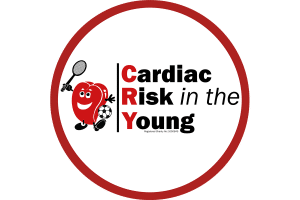Do these tests identify all people at risk?
The current screening programme, which involves an ECG and a health questionnaire, will not identify all conditions that cause sudden cardiac death. There are conditions such as anomalous coronary arteries and premature coronary artery disease that will be missed by our screening programme. Having said that, conditions like the cardiomyopathies and the ion channel disorders […]
How many times should a young person have their heart tested and when should the first test be done?
This is a question which is often asked. The answer is not straightforward and in all likelihood it will change as we learn more about the conditions which cause young sudden cardiac death, and how and when to best identify those at risk. Cardiac Risk in the Young wants every young person to have the […]
Why aren’t all schools equipped with a defibrillator?
If I had my way, all schools should be equipped with a defibrillator. Although sudden death in young people is rare, it does occur and when it does occur, it destroys lives and costs many, many life years. The terminal heart rhythm disturbance in individuals who die is ventricular fibrillation. There is only one treatment […]
What is an ICD? What does it do?
An ICD stands for an internal cardioverter defibrillator. This is a device that is implanted into the body under local anaesthetic . The patient usually comes in as a day case to have the procedure done and the device lives just under the left collar bone. We make a 5cm incision under the left collar […]
Why is it recommended that elite athletes have both an ECG and an ECHO?
Most people that play sport are evaluated with a simple ECG and a health questionnaire. However, the very elite athletes normally undergo an ECG and an echocardiogram. To be quite honest, ECG alone is inferior to an ECG and a cardiac ultrasound. The ECG alone will exclude important electrical faults of the heart but will […]
Would the ECHO pick up anything the ECG would miss?
The ECG is very good at picking up electrical faults of the heart but the echocardiogram is a much more detailed investigation that looks at structural abnormalities of the heart. So, minor holes in the heart, minor valve problems will be missed by an ECG but will be picked up with an echocardiogram. In my […]
I’ve heard about CPR. Could you explain how this is effective in dealing with sudden cardiac death?
CPR stands for cardio pulmonary resuscitation and there are two forms of CPR. There’s the basic CPR and there’s the advanced CPR. Basic CPR involves cardiac massage and providing artificial breaths to someone whose heart has stopped. I believe that every British citizen should be trained in basic CPR – basic CPR can save lives. […]
Can I book an exercise stress test?
The exercise stress test could be regarded as an important part of screening for cardiac abnormalities. My personal opinion – in young people in whom the commonest cause of sudden death is from the cardiomyopathies or the ion channel diseases, is that an ECG and an echocardiogram alone is enough. However, there are lots of […]
Are there certain sports which are pre-disposed to long QT?
There is certainly a connection between certain sport deaths and long QT syndrome. The most common sporting discipline that is associated with sudden death in long QT syndrome is swimming. The thought process is that the dive into the water at the beginning of a swimming contest incites an adrenergic surge – that is a […]
What does it mean to be carrier?
There are certain people who are gene carriers for some of the conditions such as hypertrophic cardiomyopathy or long QT syndrome but these individuals do not manifest any of the clinical features, ECG features or echocardiographic features of the condition. These types of individuals are known as obligate carriers. They can, however, pass the gene on […]




